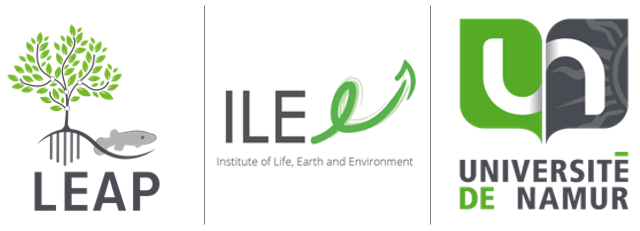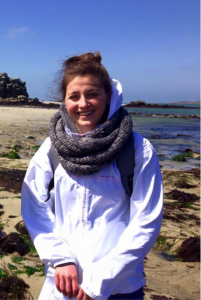I studied biological sciences at Namur University (Belgium) and specialized in biology of organisms and ecology. My studies also enabled me to discover another university, as I realized an exchange in Cardiff University (UK) during my master. For the last part of my Master’s program, I performed a four months internship in the Centre for Research and Conservation (Royal Zoological Society of Antwerp, Belgium). Overall, all of my academic choices have revolved around the idea of linking different biology domains in an integrative approach to characterize biological systems at the molecular, cellular, organism and population levels. Thus master courses such as proteomics, epigenetics, genetic of populations, communities and ecosystems, physiology, ethology and ecotoxicology where chosen.
My master thesis was carried out in the laboratory of Pr. Frédéric Silvestre. Its main objective aimed to estimate boldness and aggressiveness variability of the self-fertilizing mangrove rivulus Kryptolebias marmoratus, and calculate their heritability. It also aimed to highlight the underlying genetic basis of these behavioral traits by measuring the expression of related candidate genes via RT-qPCR analysis. This one-year research project raised questions about links between phenotypic, genetic and epigenetic variability in the light of evolution that deserved to be investigated.
Thus I started a PhD in 2018 at Namur University to continue my research project on epigenetics and behavioural traits in the mangroves rivulus with Pr. Frédéric Silvestre as supervisor and Pr. Caroline Nieberding (UCL) as co-promotor. The general objective of this research is to explore the extent to which epigenetic polymorphism contributes to behavioural individuality in an evolutionary and adaptive point of view. The characterization of epigenetic variability origins could allow us to determine the place of epigenetic mechanisms such as DNA methylation in evolution mechanisms.
Contacts : valentine.chapelle@unamur.be

